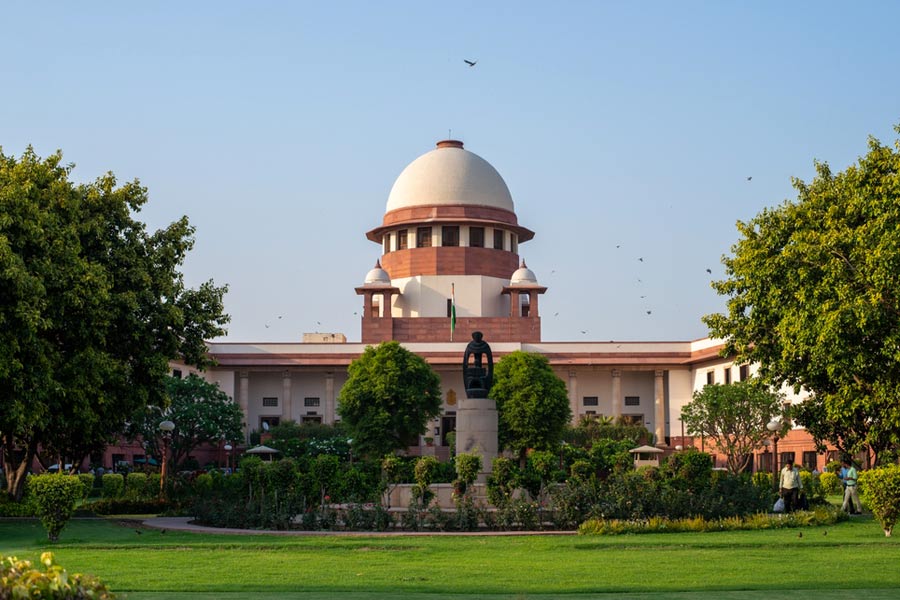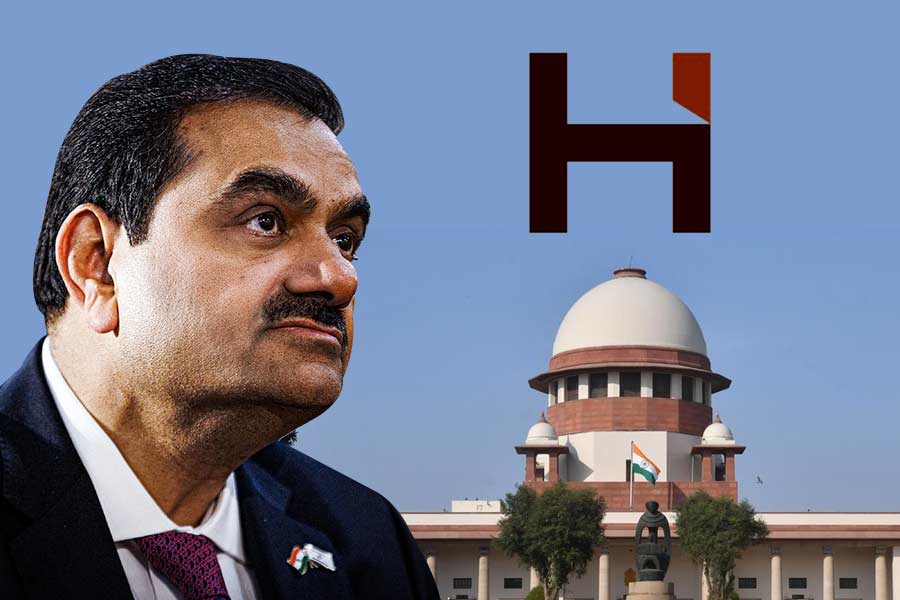The Supreme Court on Friday restrained Gujarat police from arresting two journalists who had written an article on the Adani group against the backdrop of the Hindenburg Research report’s allegations against the business conglomerate.
While granting the interim protection to journalists Ravi Nair and Anand Mangnale, the bench of Justices B.R. Gavai and Prashant Kumar Mishra issued a notice to the Gujarat government on the duo’s petition challenging the police summonses issued to them.
Initially, the bench wondered why the petitioners had directly approached the Supreme Court instead of the state high court. Senior advocate Indira Jaising, appearing for the journalists, submitted that the summonses had been issued without proper jurisdiction and were an attempt at “harassment” and “a prelude to arrest”.
She said the police crime branch had issued the summonses without specifying the charge or section. Crime branch personnel had merely informed the journalists they were being summoned for questioning in connection with a preliminary inquiry on an application from Yogeshbhai Mafatlal Bhansali, an investor who had alleged the article was grossly malicious and false, Jaising said.
She told the court that the Gujarat crime branch lacked the jurisdiction to issue any such summons under either Section 160 CrPc (summoning a witness) or Section 41A CrPC (a police officer summoning a person to appear before him or her).
Jaising argued that the Gujarat police could not issue the summons under Section 160 as both journalists reside in Delhi, or under Section 41A as no formal FIR had been registered in the case.
“Therefore, these summonses are violations of Article 21 (fundamental right to life and personal liberty). No reason for me to appear before this police officer. These notices are completely without authority of law,” Jaising said.
“The article has been written, this is not being denied. But why is the petitioners’ presence required? To make an arrest? This is nothing but harassment. The concern is that this is a prelude to arrest.”
US short-seller Hindenburg Research had accused the Adani group of accounting fraud and stock manipulation, charges the conglomerate has denied.
The article by Nair and Mangnale was published on August 31 on the website of the Organised Crime and Corruption Reporting Project (OCCRP), a global network of investigative journalists.
Nair was served with a summons on October 16 and Mangnale on October 25.
In their petition, filed through advocate Paras Nath Singh, the journalists have contended that their co-authored article, “Documents provide fresh insight into allegations of stock manipulation that rocked India’s powerful Adani group”, was published in the public interest.
They said the article was based on documents obtained by the OCCRP after detailed research.
The petitioners said they had exercised due diligence and reviewed the documents in keeping with good journalistic practice and had sought responses from the Adani group before publishing the article.
They said that international newspapers, namely the Financial Times and The Guardian of Britain, too had reported on lines similar to their article’s.
The petitioners submitted that even if a case was made out on the article, it could at best be under the defamation law in which the police have no role to play.
In a defamation case, a court alone can issue summons to someone on the basis of a private complaint.
The petitioners said that according to information available in the public domain, market regulator Sebi had in 2009 barred the complainant Bhansali, along with many of his family members and associates, from buying, selling or participating in trading in the financial market for three years.
The petitioners contended that the summonses threatened their freedom of speech and violated their right not to be disturbed by a roving and fishing inquiry as allegedly sought to be done by the state.












